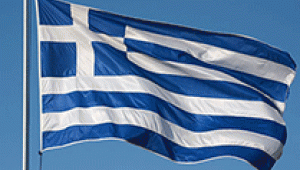Following an emergency meeting of the Eurogroup yesterday, ministers seemed hopeful that an agreement could be reached in the coming weeks to enable the release of more than €5bn in bailout cash that will help Greece make the billions of dollars in debt repayments due in June and July.
In a statement issued after the meeting, ministers welcomed pension and tax reforms passed by Athens lawmakers on Sunday evening, stating this should “pave the way” for them to confirm Greece has met the conditions of its bailout and release the funds.
Greece also won a dispute over additional “contingency measures” that the International Monetary Fund and Germany had demanded be legislated for in case Greece fails to meet its fiscal targets.
However, the Eurogroup has instead opted for a counter-proposal suggested by Greece, with some amendments, which will only be triggered if the programme looks like its veering off course.
Finance ministers also agreed to examine debt relief for Greece, which will be welcome news to Athens and the IMF, which has repeatedly stated the programme needs an element of debt relief to be credible.
Greece’s debt burden currently stands at a colossal 180% of gross domestic product.
While none of that will be written off, creditors will consider how to ease the repayment process by tweaking its terms.
Dutch finance minister Jeroen Dijsselbloem, chair of the Eurogroup, said creditors had been asked to explore longer grace and payment periods, for example.
Debt-relief plans once the current €86bn bailout programme comes to an end in 2018 are also being tabled, as well as measures to reduce the burden of payments in the longer term.
However, while ministers discussed potential ways to proceed, decisions are likely to be delayed for the foreseeable future.
“Any measures will be conditioned upon full completion, full implementation of the measures agreed in the programme and will be considered later on,” Dijsselbloem said.
However, he added that the agreement on debt is expected to allow the IMF – which had refused to sign off on the first review of the programme unless debt relief was granted – to participate.
The widely unpopular reforms, passed by the Greek Parliament on Sunday, mark some of the toughest measures Greece has enacted yet.
They entailed €5.4bn in cuts aimed at ensuring Greece runs a primary budget surplus of 3.5% in 2015 – a target of the bailout programme that IMF managing director Christine Lagarde has called “counterproductive”.
However, creditors still insist that Greece create a privatisation fund and pursue banking legislation before they will deliver the cash.
Dijsselbloem said that, following yesterday’s meeting, there are “two strands of work ahead” – the completion of measures required by creditors, which could then lead to the disbursement of bailout funds, and the discussion of debt relief.
He said both would be discussed when the Eurogroup meets again on 24 May.













